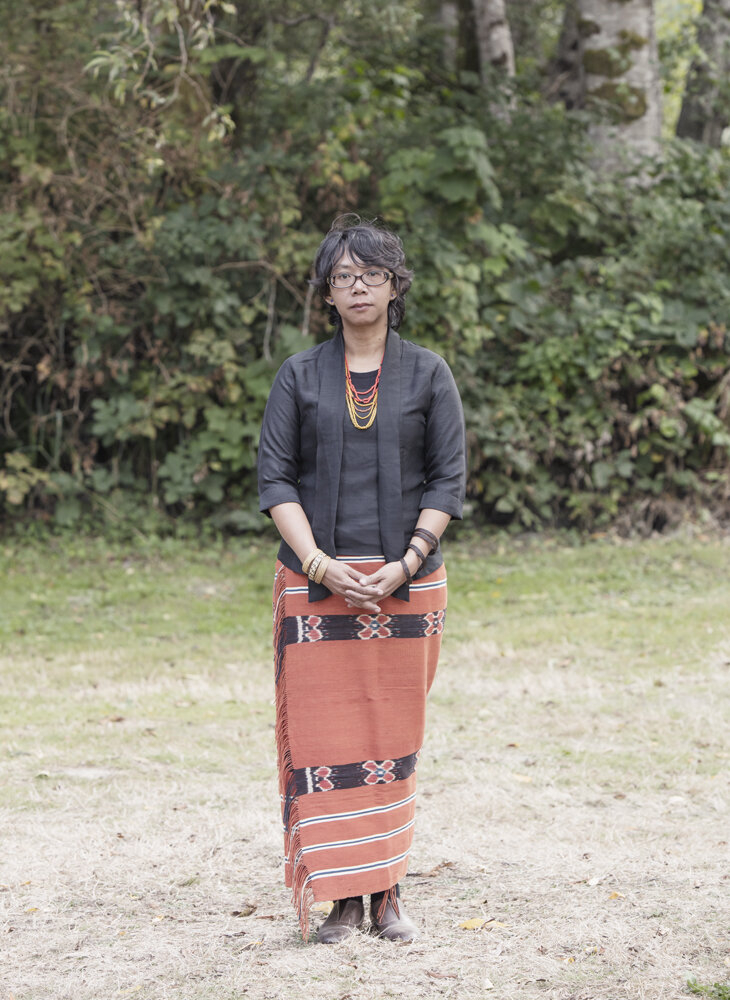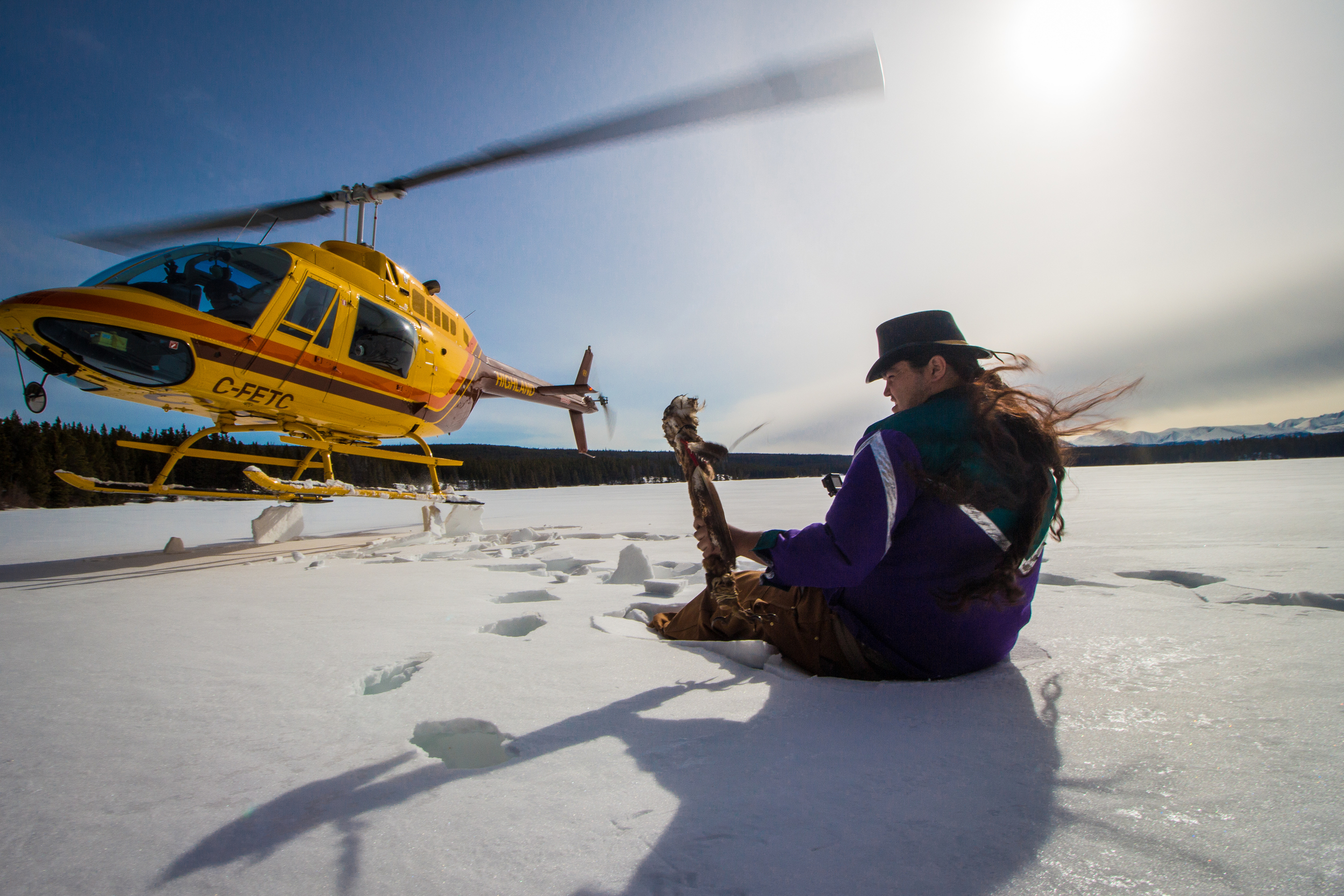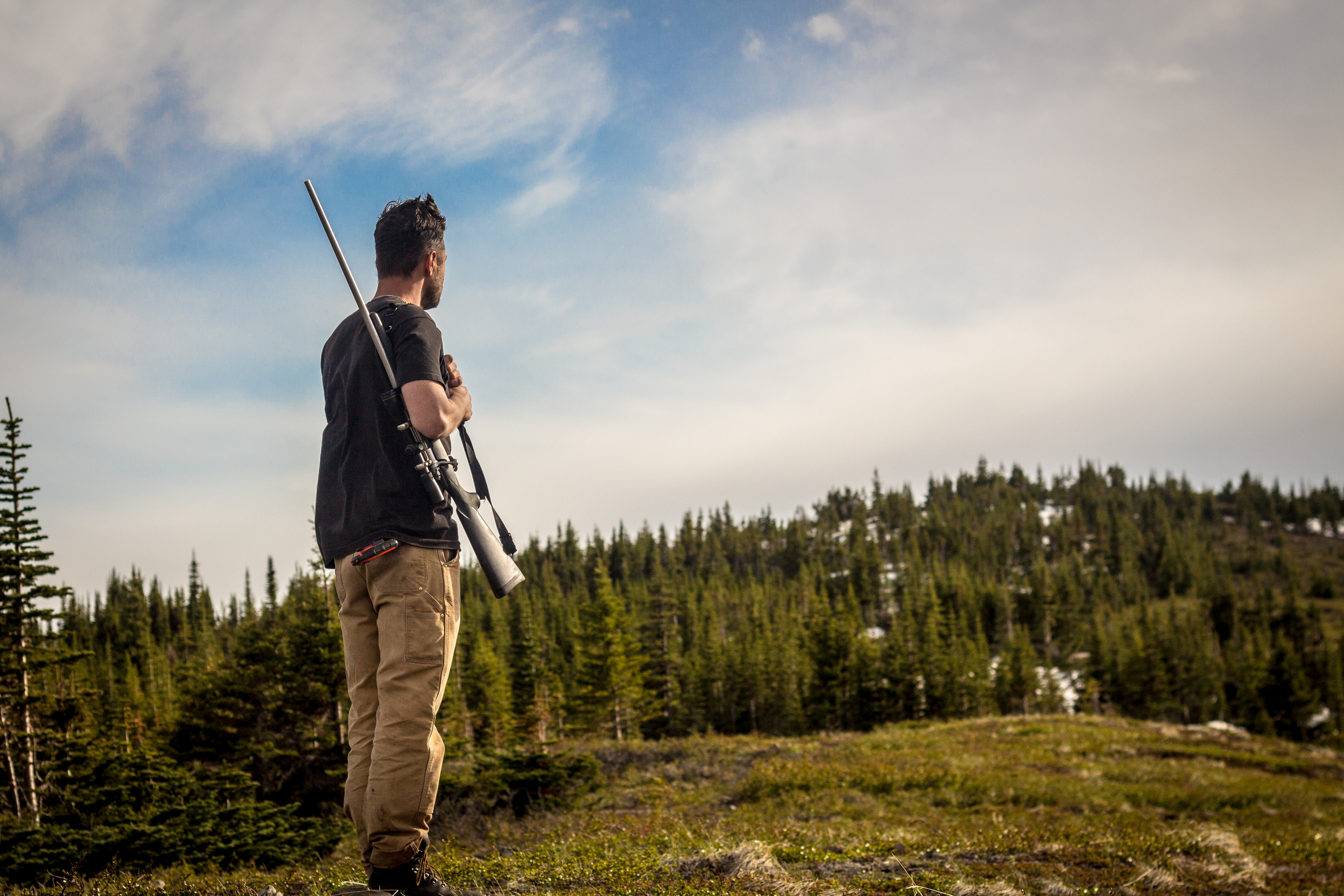Support strong Canadian climate journalism for 2025
COVID-19 and other health endemics are directly connected to climate change and deforestation, according to Indigenous leaders from around the world who gathered on March 13, in New York City, for a panel on Indigenous rights, deforestation and related health endemics.
“The coronavirus is telling the world what Indigenous Peoples have been saying for thousands of years — if we do not help protect biodiversity and nature, we will face this and even worse threats,” said Levi Sucre Romero, a BriBri Indigenous person from Costa Rica and co-coordinator of the Mesoamerican Alliance of Peoples and Forests (AMPB).
Romero was one of three Indigenous leaders invited to speak on the panel for an event sponsored by Covering Climate Now, a global partnership of more than 400 news outlets working to increase accurate news coverage on climate change.

“The coronavirus reminds us that the balance of the Earth is in danger, and we need to maintain our delicate balance of diversity,” Sucre Romero said. “More than 25 per cent of medicine comes from forests. If we lose our forests, we lose our medicines, too.”
Sucre Romero coordinates AMPB, an alliance of ten grassroots Indigenous and community groups that manage and preserve more than 50 million hectares of forest, from Mexico to Panama. He was joined by Dinamam Tuxá, coordinator of the Articulation of the Indigenous Peoples of Brazil, lawyer and Indigenous social activist, and Mina Setra, a Dayak Pompakng Indigenous person from West Kalimantan, Indonesia, and deputy secretary-general of the Indigenous Peoples Alliance of the Archipelago (IPAA).
A growing body of scientific research supports the claims that Indigenous Peoples and knowledge systems have raised for thousands of years around the damaging effects of deforestation, loss of biodiversity and expansion of large-scale industrial development.
Researchers have highlighted the importance of Indigenous lands for global conservation, the role of forest conservation, degradation and disturbance in Indigenous territories and a rights-based approach to conservation and climate action.
“The cure for the next pandemic, and even for this one, can be found in the biodiversity of our Indigenous lands. This is why we need to protect our lands and rights, because the future of life depends on it,” said Tuxá, who traveled across Europe last year with a delegation of Indigenous leaders, encouraging investors to boycott companies who benefit from exploitation of Indigenous lands.
Brazil in particular has experienced a consistent assault on the rights of Indigenous Peoples, including several legislative measures — such as Bill 191, legislation that would open the door to mining and large scale agriculture on Indigenous lands — that threaten the biodiversity of the country, Tuxá said.

The government of Brazilian President Jair Bolsonaro has been largely criticized by Indigenous and environmental groups since coming into power in January of last year. According to Tuxá, Brazilians are currently living through the worst political situation possible.
You cannot talk about protecting the land without talking about protecting the rights of the original peoples of the land, according to recent peer-reviewed science. A working group with the World Resources Institute has confirmed what Indigenous Peoples across the world have said for generations: That protecting the rights of Indigenous Peoples who occupy forested areas is the best way to protect the forests themselves, as well as reducing global warming and the loss of precious biodiversity.
During the months of February and March, 200 Guarani Mbya people from a small community outside of São Paulo protested against a project by the Tenda construction company. The land defenders claimed — over weeks of standoffs with authorities — that Tenda cut down about 500 trees from near their reserve land without any form of adequate consultation.
“Indigenous Peoples are at risk for defending diversity, biodiversity, for defending our lands, protecting the environment and trying to stabilize climate change,” Tuxá said, citing the Guarani Mbya's peoples recent standoff. “Health endemics like coronavirus are proof of the destruction of the forests and the climate, and we will continue to fight against deforestation and related viruses, for the balance of the planet.”
Both Tuxá and Sucre Romero spoke about Indigenous leaders in their communities who have been killed over the past year for defending their rights, and defending their lands. Indigenous peoples have been proven time and time again to be an essential part of the survival of the planet, and yet we continue to be threatened and even killed, argued Sucre Romero.
If you look to Indigenous communities across the world, you'll discover issues related to land-theft, violation of rights and nonconsensual resource extraction and exploitation, but you will also find grassroots solutions to the same problems, according to Mina Setra, secretary-general of an alliance that brings together 17 million Indigenous Peoples from across the Indonesia archipelago.
“The orientation of our communities is sustainability,” Setra said during an online press briefing. “While everyone is trying to find solutions on what to do to face climate change, they look to the cities, but no one is looking at what we are doing in the villages and communities.”

Land-grabbing, encroachment and even forest fires, happen when communities are empty, Setra said, which is why in Indonesia, AMAN started a “homecoming movement,” calling Indigenous youth back home to manage their territories.
“We have 53 Indigenous schools established, and others in the process, as well as other initiatives focused on managing the lands, making medicine gardens and transferring knowledge between elders and younger generations,” Setra said. “There is so much richness in our territories, our plants can heal so many diseases people think there are no cures for. There are solutions in communities.”
Big companies pay a lot of money to see their projects through, Setra said, most of the time without the consent of Indigenous Peoples who occupy the land or will be affected by large projects. But if Indigenous rights are secured, companies can save money by adopting principles of sustainability, by changing their behaviour and simultaneously investing in the rights of people, as well as the futures of their companies.
The number of confirmed COVID-19 cases in Canada rose to 1,739, the number of probable cases to 437 by the end of Tuesday, while the country's death toll from the new coronavirus rose to 25. 18, 804 people have died across the world from the virus. Countries across the world continue to practice and demand citizens stay quarantined, borders have shut, businesses closed, and flights cancelled, while the world tries to contain a difficult endemic that has drastically changed everything from the world's economy to the environment in just a few months.
“In our communities, we have respected a certain biodiversity that protects us today,” Romero said. “We plant what we eat, and we have the resources and knowledge needed to get through times like this, and this is what we are trying to tell the rest of the world.”
The problem is a culture of exploitation dominating cultures grounded in sustainability, Setra added.
“I remember one elder told me, the problem with city people is they eat and drink dead things … they drink dead water in plastic bottles and eat dead food from supermarkets. There is no guarantee that any of it will be safe,” Setra said.
In Canada, Indigenous Peoples and allies continue to stand up against large industrial projects, such as Coastal GasLink's natural gas pipeline, a project that would drive through the unceded territory of the Wet'suwet'en Nation, despite the fact that all hereditary chiefs remain opposed to the construction. Hundreds of thousands of people took to the streets in all major cities in Canada over the past months, while a group of Indigenous youth and supporters took over Victoria's legislature building and Wet'suwet'en community members continued to defend their governance system, rights, and lands.
The current health endemic has sent the world spiraling, as people frantically investigate the social, political and environmental problems that led us to the current global crisis, but at the same time trying to contain and control it. But as we examine the problems that led us to today, many also point to the solutions, the ones tried and tested over millennia. National Observer's First Nations Forward series intends to do just that - continue to highlight community-based stories of success and self-determination, perhaps in a time when we need it the most.







Comments
Essential knowledge...essential dots connected. While we stress over 'financial markets' we neglect to examine the real sources of all wealth......and avoid facing the damage western exploitation has done to the earth that sustains us. Indigenous people haven't forgotten. We need to listen to them, thank them for having the courage to stand for the land that actually sustains us.
Even more, we need to open our minds and hearts, and join them........climate change is real, this corona virus just one manifestation of the changes our industrial growth model has guaranteed.
Thank you for keeping the environment story alive in the day of COVID-19.
There is an imbalance in our management of the planet, stemming from a lack of government and industry support for the real meaning of conservation: using resources in a sustainable manner.
Quick fact check: Not all Wet'suwet'en hereditary chiefs oppose the pipeline. There is a considerable range of views within the community.
Thanks Barry for your comment. As far as I have been informed, it is true that all Wet'suwet'en hereditary chiefs oppose the pipeline. Elected leadership have supported the project, which is where the divide stems from. Do you have sources informing you otherwise? Stay safe and well.
The sources would be the Globe and Mail for the original Feb 2019 story:
https://www.theglobeandmail.com/business/article-wetsuweten-chiefs-remo…
Just the other week, there was an update at BIV.com
https://biv.com/article/2020/11/female-hereditary-chiefs-challenge-wets…
Three women claimed hereditary chief titles. This didn't seem to be a problem until they came out in favour of Coastal Gaslink, like the democratic town leaders. Male chiefs "stripped them of their titles", in a process that neither article makes clear, and the three women calling themselves the "Matrilineal Coalition" consider the matter still in dispute.
There's really nothing in the Wetsuweten web pages for their constitution, (as it were) that clarifies what makes for a "hereditary chief", since it isn't really hereditary...basically I suspect it's "community consensus". But we could be just looking at a situation where a bunch of aggressive men bullied some women and got away with it.
I'm just not aware of any journalism that has clarified how the Wetsuweten choose their hereditary chiefs, how they acquire legitimacy to negotiate on behalf of the Nation. Elections, we can understand, but not the system that the Matrilineal Coalition are protesting. Worse, the women are calling upon the Province and Canada to intervene(!) which I'm sure Horgan and Trudeau would rather squirt acid in their eyes, than do.
Any beliefs I had that indigenous nations were inherently more ecological in their attitudes was ruined in the early 1990s, when one of the American hurricanes that leveled Florida (Andrew? Hugo? I think, Hugo..) briefly spiked up the price of lumber on the continent by multiples. Lumbermen were driving around asking farmers if they could harvest their little copses that grew around low, wet spots.
Well, the Stoney (Nakoda) did a whole lot of downright clear-cutting. The Bow watershed started having problems with the dirt in the spring runoff because so much topsoil was washing down. Pleas to stop were met with insistence on the sovreignty of the Nakoda. There were a lot of brand-new pickups around the Nation that year, but a lot of topsoil and forest were lost.
It's not some huge outrage or scandal or anything - this was all 25-30 years ago, before most newspapers hit the Internet, and stories about it are hard to find - but I came away convinced that the land can need defending from the indigenous as well, if there's enough advantage to be gained from hurting it.
"“The coronavirus is telling the world what Indigenous Peoples have been saying for thousands of years — if we do not help protect biodiversity and nature, we will face this and even worse threats,”
This is just opportunistic, propaganda; total BS.
So called 'indigenous peoples' have been modifying their environment for 10,000's of years. The only thing that has protected their environment to date is that these modifications have been technologically limited, e.g. slash and burn agriculture or coastal hunter gatherers, limited by stone-age technology.